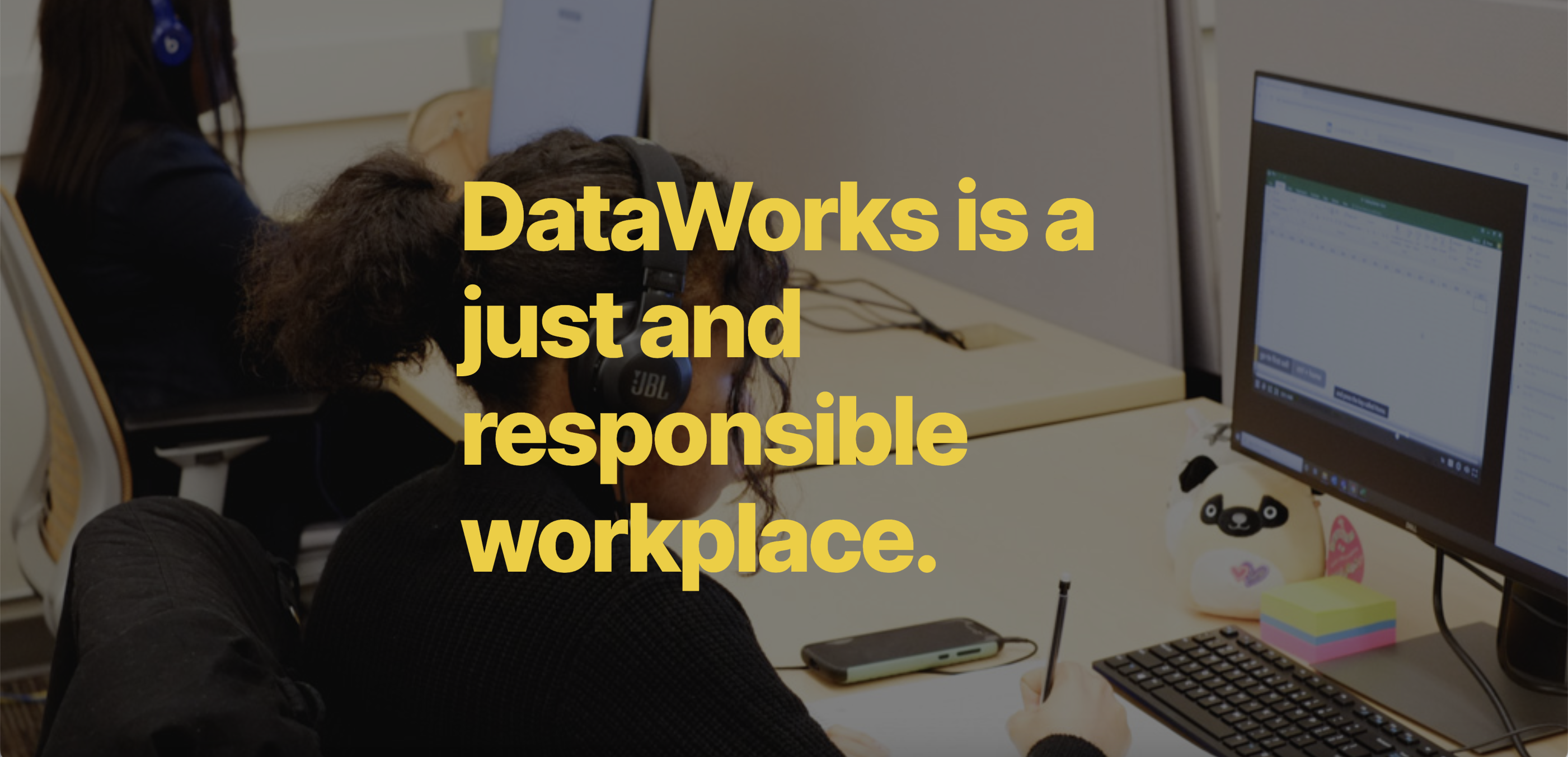How Participatory Design Can Bring
the Value of Higher Ed into our Local Communities
Institutionalizing PIT
March, 2023

Author: Carl DiSalvo is an Associate Professor in the College of Computing at Georgia Tech. He teaches design, theory, and methods courses, in addition to serving on the DataWorks team. His most recent book is Design as Democratic Inquiry (MIT Press, 2022), and he is an editor of the journal Design Issues.
One of the great things about PIT-UN is that each member has a unique approach to public interest technology. Our different specialties, histories, student bodies and geographical locations make for a rich mix of ideas and approaches. A number of us at Georgia Tech’s College of Computing have strong backgrounds in Participatory Design (often called Co-Design), so it has naturally been at the center of many of our efforts – including one of our flagship projects, DataWorks.
DataWorks is a program based at Georgia Tech that recruits young people from communities historically minoritized in computing, and employs them as data wranglers on contract-based projects with local government, small business and nonprofit clients.
The Why & How Behind DataWorks
Like many start-ups, DataWorks was born out of long-standing frustrations. My colleagues and I had over the years encountered countless organizations in our community that wanted to collect and use data somehow, but lacked the time and resources to do so. Simultaneously, there is a wealth of labor potential in Atlanta communities that have been historically shut out of computing professions. At the intersection of these two problems, we saw an opportunity.
Drawing on grant funding and income generated from contract-based projects with non-profit, government, and for-profit organizations, DataWorks hires data workers as Georgia Tech employees with benefits and hourly pay. Faculty and students who contribute to the project do not receive compensation, but get meaningful work experience while engaging more deeply with our surrounding communities.
At a time when higher education is under question and under attack, demonstrating how we produce value to our communities is not just the ethically right move, but the politically sensible move as well.
Through learning how to responsibly handle data using tools like Excel and Python, workers develop new, transferable skills, and are eligible to take courses at Georgia Tech. In keeping with Participatory Design principles, we aim to make DataWorks as democratic as possible, so our workers have a say in both their working conditions, and in the outputs of their labor.
I’ll give an example to make this concrete. Before we start on a project, our workers review a sample of the data and have the opportunity to raise issues with how it’s being collected, and how it might be used. Given that data is often used in extractive or otherwise harmful ways against marginalized communities, we think this is well worth the time and effort. In one case, our workers even wrote up terms and conditions for a client, to ensure that the data they cleaned and processed wouldn’t be used in a harmful way.
Participatory Design & Institutionalizing PIT
If DataWorks sounds to you like a lot of time and effort, that’s because it is. We’re still figuring out how to balance this work with our existing teaching and research, but we’re confident that we can make a compelling case for course releases and other exemptions to our senior leadership. I’ll lay out a few of these rationales here, before closing with some advice should you be interested in pursuing a Participatory Design project with your community.
We see DataWorks as part of our responsibility to provide value to the state of Georgia, not just to the students who are able to attend our institution. Higher education has gone so far in the direction of job preparation, we’ve forgotten about our role in promoting the public interest beyond the four walls of the classroom. Furthermore, because universities are often not the best neighbors, this project is one way we can contribute in a positive way and build healthier relationships with Atlanta communities.
On a practical level, this work is especially important at a time when higher education is under question and under attack. Demonstrating how our university produces value to our communities is not just the ethically right move, but the politically sensible move as well.
We’re hopeful that more and more institutional leaders will realize that having strong PIT programs provides a clear rationale for protecting and funding higher education in an evermore technological world.
Key Learnings
Finally, if you’re considering pursuing a Participatory Design project with your community, here are a few of our learnings:
When seeking out partnerships with people and organizations in your community, remember that you’re asking for a commitment to do something outside of their jobs and their personal lives. Accordingly, it’s our job as academics to show up and contribute before we make an ask. If you want to co-design a project to help with evictions defense, spend some time volunteering with a tenants’ rights group or legal advocacy nonprofit. Show that you’re committed to the work, not just your own teaching or research agenda.
Really ask and really listen to what will work for community members you want to engage. This one is particularly hard for designers and technologists, as we’re accustomed to having much of the power and say in how tech is designed and deployed. As a rule of thumb, draw up a formal agreement, and don’t commit to anything you won’t be able to deliver.
On the other hand, it’s possible to go too far in the direction of power-sharing. Designers and technologists have a certain amount of authority in society, and Participatory Design exists as a means to share space and power with other forms of expertise. However, our workers have let us know that they really do want us to lead in certain areas. For example, when they are developing the basic skills for the job, they don’t yet have time to engage in meta-level work, like co-designing a project tracking mechanism.
DataWorks has laid a strong foundation for us to advocate for longer-term institutional investment in public interest technology at Georgia Tech; we hope to see many more projects like it across PIT-UN, and look forward to contributing to your journey however we can.

